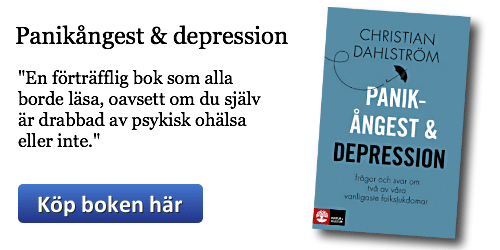Last year, while I was making a podcast documentary about Sigmund Freud, I got the chance to interview Frederick Crews, a renowned critic of Sigmund Freud and author of the book “Freud: The Making of an Illusion”. You can listen to the full interview above (the documentary is in Swedish, unfortunately). Here’s a short summary:
Professor Crews has spent decades examining Freud’s life and work, challenging many of the widely accepted ideas about the father of psychoanalysis. Our conversation shed light on some of the key aspects of Freud’s personality and how they influenced his theories.
One of the main traits that Crews emphasized during our conversation was Freud’s ambition. Crews explained that Freud’s ambition was divorced from scientific curiosity:
“He had a scientific career briefly before he took up psychoanalysis, but his real interests were never scientific, they were literary and philosophical and historical. He really wanted to be a great personage in the world, and he was determined to make it happen. And to do so quickly as possible, even – you might say – suddenly.”
This ambition led Freud to endorse various theories without thoroughly examining the evidence for or against them. He was not driven by empirical investigation but rather by the desire for public success. Crews pointed out, ”What he did was to appeal over the heads of his scientific colleagues to the broad public, and to present himself as a great discoverer, as a kind of legendary figure. He was a great success at that, but that’s not science.”
”What he did was to appeal over the heads of his scientific colleagues to the broad public, and to present himself as a great discoverer, as a kind of legendary figure. He was a great success at that, but that’s not science.”
Freud’s scientific career before psychoanalysis was quite brief, but he had a talent for microscopic studies of human and animal anatomy. Unfortunately, he lacked the empirical rigor one would expect from a successful scientist.
”Freud was incapable of self-criticism, if anything went wrong with his treatment, it was somebody else’s fault, always, it was never his. And, you know, in a typical scientific career someone might be lucky enough to discover something at some point after many years of labor and many disappointments and frustration, but a scientist will keep at it until he or she has exhausted the rational possibilities. And as I said this simply just was not Freud’s way, he didn’t have either the temperament or the circumstances in his life that would enable him to show such patience,” Crews explained. In his view, Freud’s impatience and lack of self-discipline hindered his ability to test his theories rationally and led to frequent abrupt changes in his ideas.
Cocaine Controversies
To understand the roots of Freud’s theories, one also has to examine his early involvement with cocaine. Professor Crews highlighted that cocaine played a crucial role in Freud’s professional life, and in making the “discoveries” of psychoanalysis:
“One of the effects of cocaine that Freud emphasizes in his writings, is that it frees a writer from writer’s block. You become uninhibited in your thinking and your writing. Well, if that’s so, what this implies is that Freud’s theories were developed under the influence of cocaine. And if you read the Freud-Fliess letters with that in mind you will see a great deal of evidence of confusion of mind as he searches around for the key to the unconscious and so forth.”
”Freud’s theories were developed under the influence of cocaine.”
Freud’s advocacy of cocaine was reckless, as he did not conduct proper research or consider the negative effects it could have on patients. Instead, his main source of information was actually old editions of an advertising magazine for a pharmaceutical company.
“He read some back numbers of an American journal called the Detroit Therapeutic Gazette. He didn’t even notice that this journal was a propaganda operation by the Parke-Davis drug company. It was designed to sell drugs. Freud never even noticed that, even though the name of the owner of the company was on the cover of the magazine,” Crews explained, adding: “The Detroit Therapeutic Gazette had stopped recommending cocaine some four years before Freud became aware of it. He had to read the back numbers. There was something about cocaine that made Parke-Davis very nervous, they were backing off from it. But Freud didn’t care about that.”
The interview also shed light on Freud’s insatiable desire for wealth and fame. Freud’s wife criticized him for thinking about nothing but money, and he made his patients pay him large sums of money, knowing that he would never succeed in curing them.
”Freud was extremely greedy, he had various hidden foreign bank accounts. He knew that many of his patients were incurable but they were very, very wealthy, and he had no intention of telling them that they should seek some other form of cure or they should just give up. He liked very much the fact that he charged them a great deal of money for treatment that could go on and on and on for years. And he became extremely wealthy, he lost every penny of it in World War I, but after the war he resumes his ways and became very, very wealthy again. Wealth and fame were of paramount importance to him.”
”Freud was extremely greedy, he had various hidden foreign bank accounts. He knew that many of his patients were incurable but they were very, very wealthy, and he had no intention of telling them that they should seek some other form of cure or they should just give up.”
Distorting the Truth
When asked about the criticism Freud faced for his promotion of cocaine, Crews explained, ”There was a man named [Albrecht] Erlenmeyer who actually was a responsible physician, who had been dealing with cocaine and knew a great deal about it, who read Freud’s papers. Freud wrote four or five papers in the 1880s, rashly advocating therapeutic use of cocaine. Erlenmeyer read these papers and thought they were horrible, and criticized Freud, and especially criticized him for recommending that morphine addicts be injected with cocaine.”
How did Freud react to this harsh criticism from one of Europe’s leading experts on morphine addiction? Well, he kept lying.
“Freud’s response to Erlenmeyer was: ‘I never said that, I never advocated the injection with cocaine, with patients. I just didn’t do it.’ So, he was absolutely lying, what he was doing was counting upon the fact that his readers would not look up his original papers and find out what he had said.”
According to Crews, this deliberate misrepresentation of his own work was a recurring theme in Freud’s career. The extent to which Freud and his disciples attempted to hide the truth about his cocaine use and other aspects of his life and work is also significant. Professor Crews noted, ”The psychoanalytic establishment largely ignored the topic of cocaine, hoping to prevent it from reaching the public eye. Freud’s devoted disciples, who were closely associated with him, knew about his flaws but often remained silent.”
”The psychoanalytic establishment largely ignored the topic of cocaine, hoping to prevent it from reaching the public eye.”
In conclusion, understanding Freud’s personality traits, including his ambition, lack of scientific discipline, and greed, is essential for a comprehensive understanding of his theories. His involvement with cocaine and his disregard for scientific rigor compromised the validity of his work. Professor Crews’ insights provide valuable perspectives on Freud’s life and the origins of psychoanalysis, urging us to critically reevaluate the contributions and limitations of this influential figure in the history of psychology.
This is just a short summary of the interview; the full interview can be listened to (for free) in the player at the top of this post. Enjoy!




